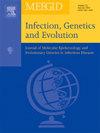Genetic polymorphisms associated with periodontitis in Japanese populations: A comprehensive review of pathways, interactions, and clinical implications
IF 2.6
4区 医学
Q3 INFECTIOUS DISEASES
引用次数: 0
Abstract
Periodontitis is a chronic inflammatory disease affecting the supporting structures of teeth, with increasing evidence supporting a significant genetic component in disease susceptibility. This comprehensive review evaluated the associations between genetic polymorphisms and periodontitis in Japanese populations. This narrative review synthesizes available evidence without employing meta-analytical methods. Analysis of relevant studies revealed population-specific genetic architecture, with patterns that suggest possible differences from those observed in Western populations. Significant associations were identified for Japanese populations in immune-related genes (*IL1RN* VNTR: OR 3.40 in G-EOP; *IL1B* -511: OR 1.72 in chronic periodontitis), immunoreceptors (*FCGR3A*-158 V: OR 2.03 in severe chronic periodontitis), tissue remodeling genes (*MMP1* -1607 1G/2G: OR 1.95 in chronic periodontitis), and vitamin D pathway genes (*VDR* +1056 T/C: OR 2.45 in chronic periodontitis). Novel genetic associations with exceptionally strong effect sizes were identified with *ADGRG6* (formerly GPR126) (rs536714306: OR 9.09), *MAEA* (rs6815464: OR 3.73), and *CSF1* genes, expanding our understanding beyond traditional inflammatory pathways. Gene-gene interactions, particularly between *VDR* and *FCGR3B* polymorphisms (composite genotype: OR 5.93), demonstrated substantially stronger associations with periodontitis than individual polymorphisms alone. Protective genetic variants, including *FCGR3B*-NA1 allotype in elderly individuals and *IL1B* rs16944 GA genotype, highlight the concept of genetic resilience. Genetic associations differ markedly between aggressive and chronic forms of periodontitis, with stronger associations typically observed in aggressive/early-onset disease. These findings may contribute to improved risk assessment strategies and personalized approaches to periodontitis prevention and treatment in Japanese individuals, emphasizing the importance of population-specific genetic profiling in periodontal medicine.
遗传多态性与牙周炎在日本人群:途径,相互作用和临床意义的全面审查
牙周炎是一种影响牙齿支撑结构的慢性炎症性疾病,越来越多的证据支持疾病易感性的重要遗传成分。这篇综合综述评估了遗传多态性与日本人群牙周炎之间的关系。这篇叙述性综述综合了现有的证据,没有采用元分析方法。对相关研究的分析揭示了群体特有的遗传结构,其模式表明可能与西方人群中观察到的差异。在日本人群中发现了免疫相关基因的显著相关性(*IL1RN* VNTR: G-EOP OR 3.40;* il - 1b * -511:慢性牙周炎OR 1.72)、免疫受体(*FCGR3A*-158 V:重度慢性牙周炎OR 2.03)、组织重塑基因(*MMP1* -1607 1G/2G:慢性牙周炎OR 1.95)和维生素D途径基因(*VDR* +1056 T/C:慢性牙周炎OR 2.45)。研究人员发现,*ADGRG6*(以前的GPR126) (rss536714306: OR 9.09)、*MAEA* (rs6815464: OR 3.73)和*CSF1*基因具有异常强的效应量,扩大了我们对传统炎症途径的理解。基因-基因相互作用,特别是*VDR*和*FCGR3B*多态性之间的相互作用(复合基因型:OR 5.93),与单独的个体多态性相比,与牙周炎的相关性更强。保护性遗传变异,包括老年人中的*FCGR3B*-NA1等位型和*IL1B* rs16944 GA基因型,突出了遗传弹性的概念。侵袭性牙周炎和慢性牙周炎之间的遗传关联有显著差异,在侵袭性/早发性疾病中通常观察到更强的关联。这些发现可能有助于改善日本个体牙周炎预防和治疗的风险评估策略和个性化方法,强调牙周医学中人群特异性基因谱的重要性。
本文章由计算机程序翻译,如有差异,请以英文原文为准。
求助全文
约1分钟内获得全文
求助全文
来源期刊

Infection Genetics and Evolution
医学-传染病学
CiteScore
8.40
自引率
0.00%
发文量
215
审稿时长
82 days
期刊介绍:
(aka Journal of Molecular Epidemiology and Evolutionary Genetics of Infectious Diseases -- MEEGID)
Infectious diseases constitute one of the main challenges to medical science in the coming century. The impressive development of molecular megatechnologies and of bioinformatics have greatly increased our knowledge of the evolution, transmission and pathogenicity of infectious diseases. Research has shown that host susceptibility to many infectious diseases has a genetic basis. Furthermore, much is now known on the molecular epidemiology, evolution and virulence of pathogenic agents, as well as their resistance to drugs, vaccines, and antibiotics. Equally, research on the genetics of disease vectors has greatly improved our understanding of their systematics, has increased our capacity to identify target populations for control or intervention, and has provided detailed information on the mechanisms of insecticide resistance.
However, the genetics and evolutionary biology of hosts, pathogens and vectors have tended to develop as three separate fields of research. This artificial compartmentalisation is of concern due to our growing appreciation of the strong co-evolutionary interactions among hosts, pathogens and vectors.
Infection, Genetics and Evolution and its companion congress [MEEGID](http://www.meegidconference.com/) (for Molecular Epidemiology and Evolutionary Genetics of Infectious Diseases) are the main forum acting for the cross-fertilization between evolutionary science and biomedical research on infectious diseases.
Infection, Genetics and Evolution is the only journal that welcomes articles dealing with the genetics and evolutionary biology of hosts, pathogens and vectors, and coevolution processes among them in relation to infection and disease manifestation. All infectious models enter the scope of the journal, including pathogens of humans, animals and plants, either parasites, fungi, bacteria, viruses or prions. The journal welcomes articles dealing with genetics, population genetics, genomics, postgenomics, gene expression, evolutionary biology, population dynamics, mathematical modeling and bioinformatics. We also provide many author benefits, such as free PDFs, a liberal copyright policy, special discounts on Elsevier publications and much more. Please click here for more information on our author services .
 求助内容:
求助内容: 应助结果提醒方式:
应助结果提醒方式:


